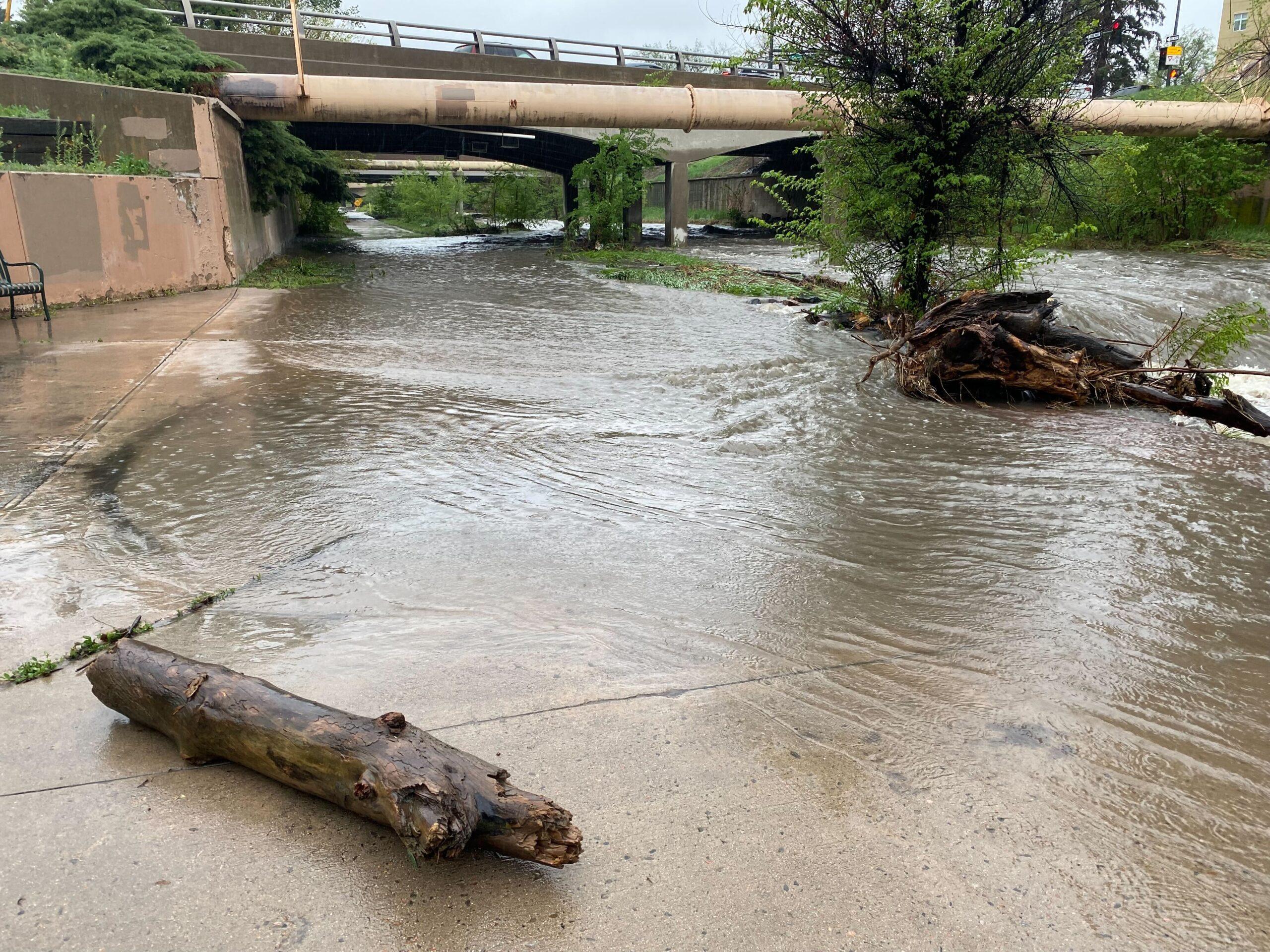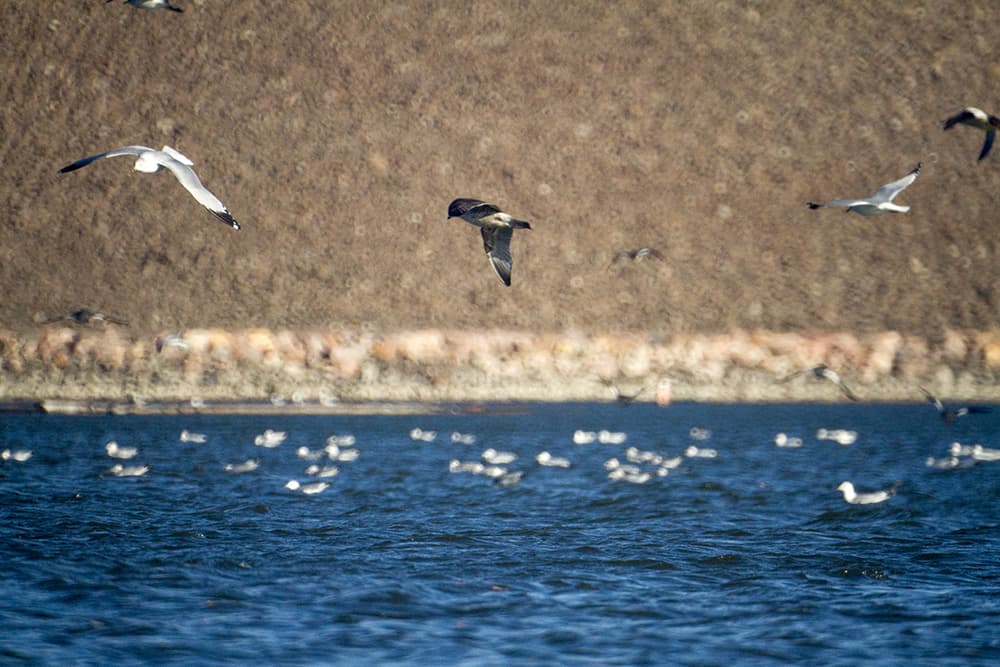The rainiest June in Denver since the 1880s. Golf ball sized hail. Tornadoes. Flooding. There is no shortage of records and bizarre weather events the Denver metro area has faced this rainy spring and summer.
Above-average rainfall also means that Denverites are using less water than usual for things like lawns and gardens. According to Denver Water, residents used 37% less water in June compared to average use from 1970 to 2022. While July's rainfall did not break records, Denver Water spokesperson Jimmy Luthye said Denverites used 18% less water this July compared to the past five Julys.
"Our customers' demand with water levels has been pretty low this year and it really is a testament to our customers and how they value water and how they recognize, 'When it's wet out, I don't need to water as much," Luthye said.

Sarah Bures/CPR News
Coloradans are used to conserving water because of drought conditions. But at the beginning of July, the entire state was drought free for the first time since 2019. While the southwest portion of the state now has some drought, Denver is still in the clear.
Luthye said the high levels of rainfall also mean Denver Water has filled all of the large reservoirs in the area.
"That's our goal every year," he said. "A lot of our water supply comes in the form of snowmelts in the mountains so we definitely hope for snowy winters, but having this much rain throughout the spring and summer [is] only a good thing."
But the question is how long things will last. With climate change threatening the Colorado River, a major water source across the West, there are bigger concerns about water access long-term.
Luthye cautioned against thinking this summer's rainfall will alleviate drought in Colorado forever. He said Denver Water relies on heavy rainfall seasons to store water and protect against drier years.
"It's one year, and it's something that we can't always count on," he said. "It's important for all of our customers to always be looking at efficient ways to use their water all year long. We can't always count on really wet years like this or really big snowy winters."












